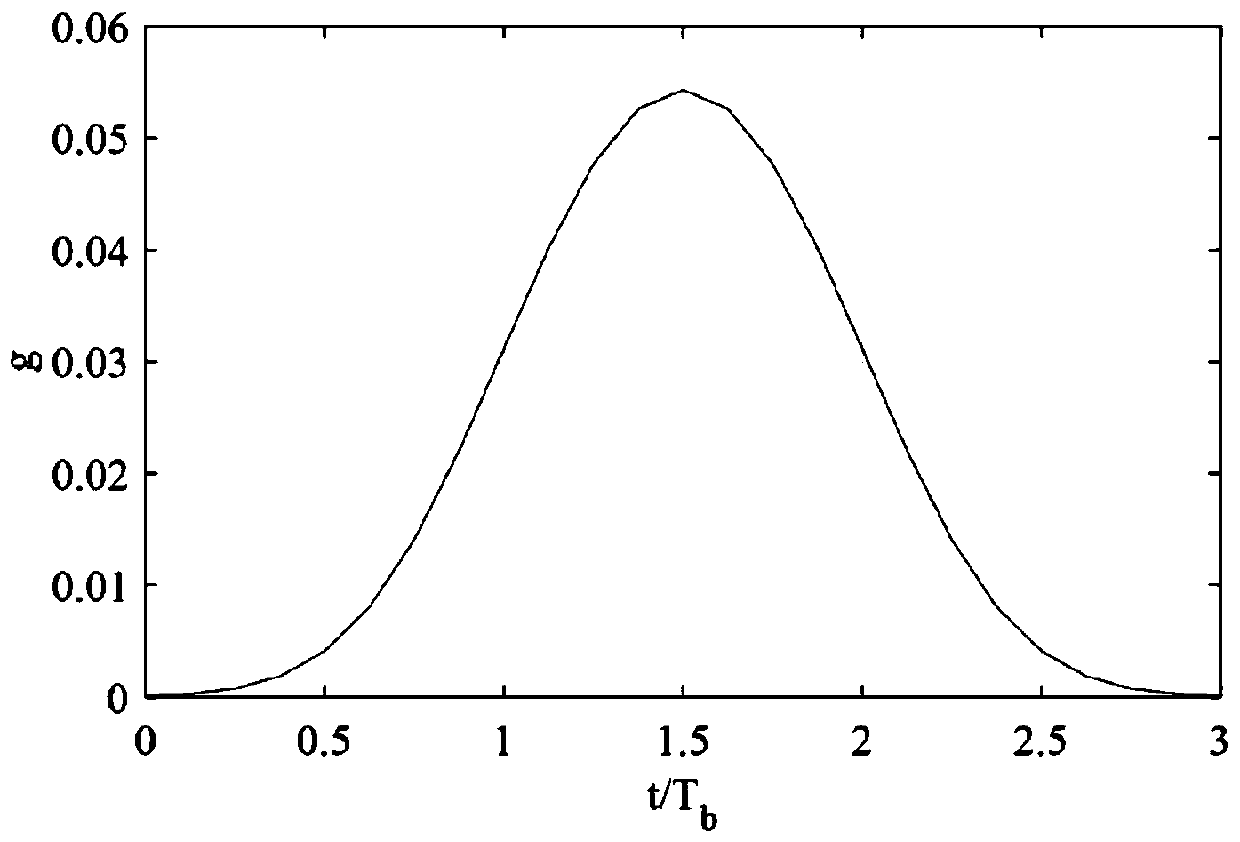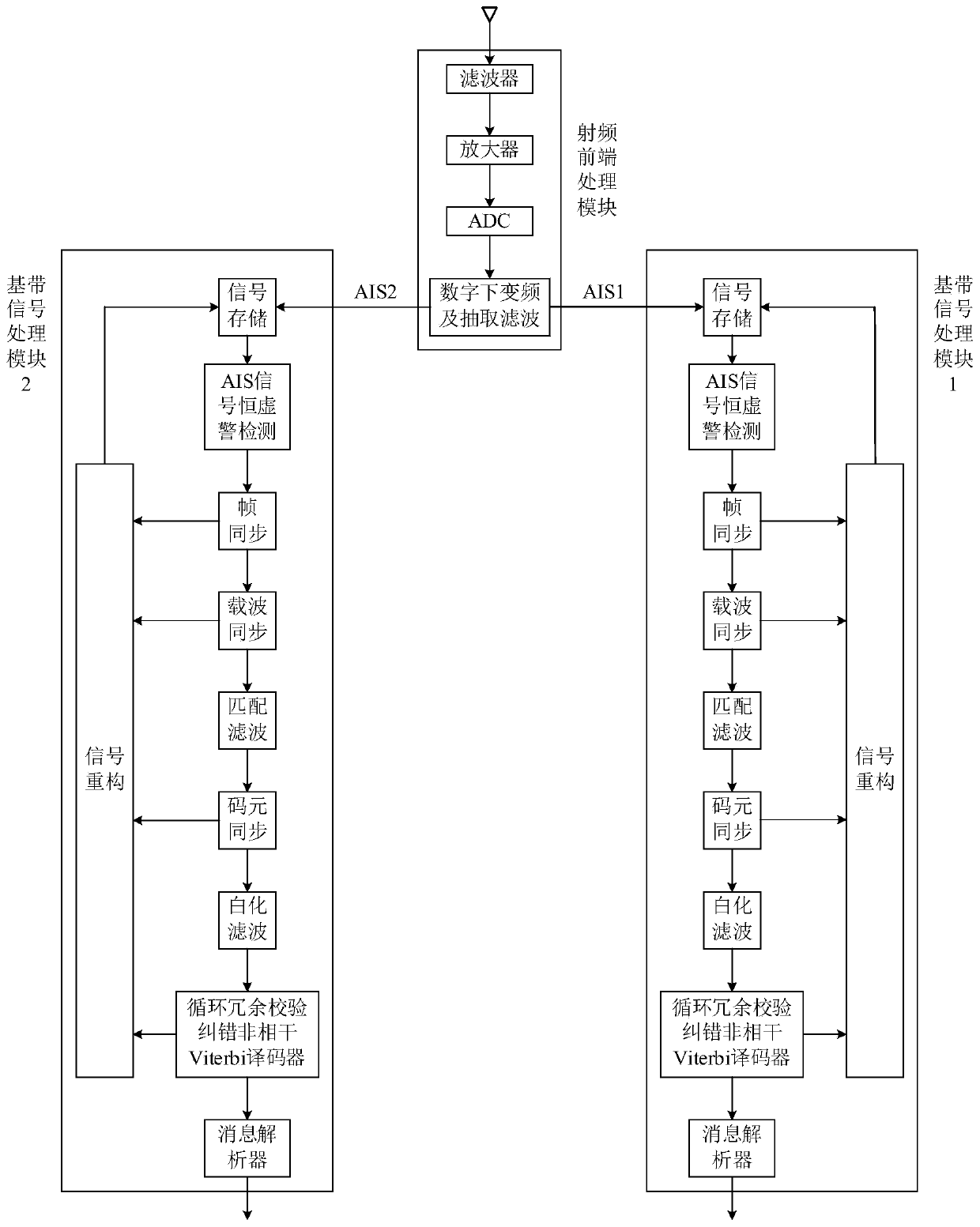Receiving method of ship automatic identification system, receiver and communication satellite
A technology of ship automatic identification and receiving method, which is applied in the field of ship satellite communication, and can solve problems such as large link loss, relatively slow operation speed, and low signal-to-noise ratio of AIS signals
- Summary
- Abstract
- Description
- Claims
- Application Information
AI Technical Summary
Problems solved by technology
Method used
Image
Examples
Embodiment 1
[0098] see image 3 , the present embodiment provides a method for receiving an automatic identification system for ships, comprising the following steps:
[0099] S1: Receive the AIS radio frequency signal sent by the ship automatic identification system, and directly sample the AIS radio frequency signal to obtain the AIS baseband signal;
[0100] S2: Perform frame synchronization on the AIS baseband signal to determine the exact starting position of the data of the AIS baseband signal;
[0101] S3: Obtain carrier frequency estimation and timing error estimation of the AIS baseband signal according to the AIS baseband signal, and synchronize the AIS baseband signal according to the carrier frequency estimation and timing error estimation;
[0102] S4: The cyclic redundancy check error correction decoder demodulates and decodes the AIS baseband signal to obtain the message content in the AIS radio frequency signal.
[0103] Now specifically describe this embodiment in detai...
Embodiment 2
[0198] see image 3 , the present embodiment provides a receiver based on the ship automatic identification system of embodiment 1, including: a radio frequency front-end processing module and a baseband signal processing module, the baseband signal processing module includes a frame synchronization unit, a preprocessing module, a cyclic redundancy check error correction decoder;
[0199] The RF front-end processing module is used to receive the AIS RF signal sent by the ship automatic identification system, and directly sample the AIS RF signal to obtain the AIS baseband signal;
[0200] The frame synchronization unit is used for frame synchronization of the AIS baseband signal to determine the exact starting position of the data of the AIS baseband signal;
[0201] The preprocessing module is also used to obtain carrier frequency estimation and timing error estimation of the AIS baseband signal according to the AIS baseband signal, and synchronize the AIS baseband signal ac...
Embodiment 3
[0289] This embodiment provides a communication satellite based on the automatic ship identification system of the second embodiment, and the communication satellite adopts the receiver of the automatic ship identification system as required by any one of the second embodiment.
[0290] The communication satellite of this embodiment is equipped with a receiver of the ship automatic identification system, which can realize communication with the ship and identification of the ship, and can monitor and track ships around the world in real time through networking satellites, thereby ensuring the navigation safety of ocean-going ships , where the communication satellite has the following technical advantages:
[0291] In this embodiment, the AIS baseband signal is synchronized by carrier frequency estimation and timing error estimation, and the AIS baseband signal is demodulated and decoded by a cyclic redundancy check error correction decoder, which solves the problem of large Dop...
PUM
 Login to View More
Login to View More Abstract
Description
Claims
Application Information
 Login to View More
Login to View More - R&D
- Intellectual Property
- Life Sciences
- Materials
- Tech Scout
- Unparalleled Data Quality
- Higher Quality Content
- 60% Fewer Hallucinations
Browse by: Latest US Patents, China's latest patents, Technical Efficacy Thesaurus, Application Domain, Technology Topic, Popular Technical Reports.
© 2025 PatSnap. All rights reserved.Legal|Privacy policy|Modern Slavery Act Transparency Statement|Sitemap|About US| Contact US: help@patsnap.com



